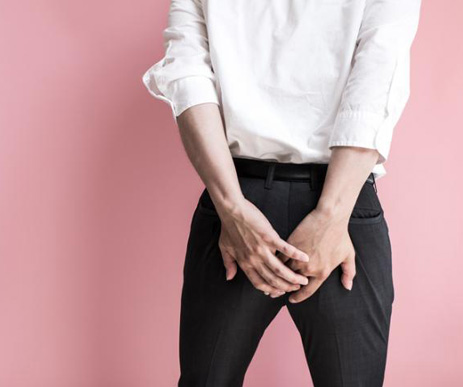
Anal itching, also known as itchy bottom, pruritus ani or anusitis, is irritation and sometimes inflammation of the anus - located at the exit of the rectum. Itching severity varies and is usually exacerbated by such factors as type of clothing worn, whether the patient is seated or upright, moisture levels, pressure and general rubbing of the anal area. Anal itching can become so severe that some people find it intolerable, describing the sensation as one of incredible burning and soreness.
Anal itching is not a disease in itself, but rather a sign or symptom. In the majority of cases, there is an underlying cause or condition which causes the anal itching. However, sometimes the underlying cause is never found.
Regardless of the cause, virtually every type of anal itching sign or symptom can be successfully treated.
Anal itching is much more common than people realize, probably because it is not exactly something most people will reveal to others, apart from the their doctors. According to the National Health Service (NHS), UK, about 1 in every 20 British people experience "itchy bottom". It is four times more prevalent in males than in females. Although anybody can develop anal itching, people aged 40 years and more are more likely to get it, compared to younger individuals.
According to Medilexicon's, pruritus ani is "itching of varying intensity at the anus; may be paroxysmal or constant, associated with seborrheic candidiasis or moniliasis, with irritated and enlarged hemorrhoidal veins, or may occur independently of any cutaneous lesions in association with systemic disease."
A symptom is something the patient feels or reports, while a sign is something that other people, including the doctor detects. A headache may be an example of a symptom, while a rash may be an example of a sign.
Most humans and other animals sometimes scratch their bottoms. For a person with pruritus ani (anal itching) the urge to scratch around the anus is very strong and persistent. Although the urge may occur at any time of day or night, it is more common after going to the toilet; especially if stools are liquidy. Some patients say the itching becomes more intense just prior to falling asleep in bed at night.
The symptoms of anal itching are self explanatory - "itching of thed the anal area". The patient generally experiences:
Symptoms may be short-term or persistent. Some individuals may experience irritation that is so intense that the desire to scratch must be satisfied there and then - this can be embarrassing.
Anal itching is usually a sign or symptom of a harmless physical problem with no long-term health consequences. Unfortunately, it can also be an indication of something more serious, such as: